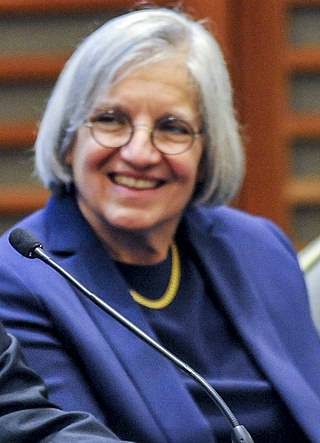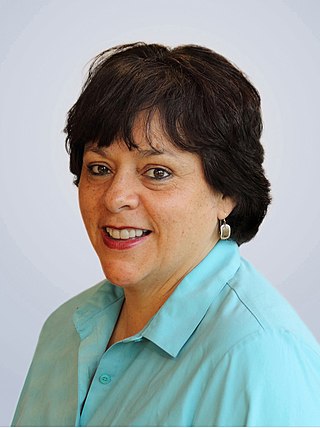Related Research Articles

Malaria is a mosquito-borne infectious disease that affects humans and other animals. Malaria causes symptoms that typically include fever, tiredness, vomiting, and headaches. In severe cases, it can cause jaundice, seizures, coma, or death. Symptoms usually begin ten to fifteen days after being bitten by an infected mosquito. If not properly treated, people may have recurrences of the disease months later. In those who have recently survived an infection, reinfection usually causes milder symptoms. This partial resistance disappears over months to years if the person has no continuing exposure to malaria.

Sir Ronald Ross was a British medical doctor who received the Nobel Prize for Physiology or Medicine in 1902 for his work on the transmission of malaria, becoming the first British Nobel laureate, and the first born outside Europe. His discovery of the malarial parasite in the gastrointestinal tract of a mosquito in 1897 proved that malaria was transmitted by mosquitoes, and laid the foundation for the method of combating the disease.
Tropical diseases are diseases that are prevalent in or unique to tropical and subtropical regions. The diseases are less prevalent in temperate climates, due in part to the occurrence of a cold season, which controls the insect population by forcing hibernation. However, many were present in northern Europe and northern America in the 17th and 18th centuries before modern understanding of disease causation. The initial impetus for tropical medicine was to protect the health of colonial settlers, notably in India under the British Raj. Insects such as mosquitoes and flies are by far the most common disease carrier, or vector. These insects may carry a parasite, bacterium or virus that is infectious to humans and animals. Most often disease is transmitted by an insect bite, which causes transmission of the infectious agent through subcutaneous blood exchange. Vaccines are not available for most of the diseases listed here, and many do not have cures.

Tropical medicine is an interdisciplinary branch of medicine that deals with health issues that occur uniquely, are more widespread, or are more difficult to control in tropical and subtropical regions.

Visakha Vidyalaya is a girls' school in Colombo, Sri Lanka. It is a National School managed by the central government providing primary and secondary education.

Angelo Celli was an Italian physician, hygienist, parasitologist and philanthropist known for his pioneering work on the malarial parasite and control of malaria. He was Professor of Hygiene at the University of Palermo, and then at the Sapienza University of Rome. He founded the Pasteur Institute of Italy. With his wife Anna Fraentzel he established a number of medical schools in the Roman Campagna and dispensaries in Rome. He and Ettore Marchiafava correctly described the protozoan parasite that caused malaria and gave it the scientific name Plasmodium in 1885. Understanding the nature of malaria, he was among the first scientists to advocate and work for eradication of insects to prevent infectious diseases. He was elected to the Senate of the Kingdom of Italy in 1892.
Sir Brian Mellor Greenwood, CBE, FRCP, FRS is a British physician, biomedical research scientist, academic, and recipient of the first Hideyo Noguchi Africa Prize.
Upali Tissa Vitharana is a Sri Lankan politician, former Member of Parliament and former cabinet minister. He is the current leader of the Lanka Sama Samaja Party (LSSP), a member of the United People's Freedom Alliance (UPFA), and is serving as Governor of North Central Province.
The American Society of Tropical Medicine and Hygiene (ASTMH) is an Arlington, Virginia-based non-profit organization of scientists, clinicians, students and program professionals whose longstanding mission is to promote global health through the prevention and control of infectious and other diseases that disproportionately afflict the global poor. ASTMH members work in areas of research, health care and education that encompass laboratory science, international field studies, clinical care and country-wide programs of disease control. The current organization was formed in 1951 with the amalgamation of the American Society of Tropical Medicine, founded in 1903, and the National Malaria Society, founded in 1941.

World Mosquito Day, observed annually on 20 August, is a commemoration of British doctor Sir Ronald Ross's discovery in 1897 that female anopheline mosquitoes transmit malaria between humans. Prior to the discovery of the transmitting organism, vector, there were few means for controlling the spread of the disease although the discovery of quinine in treatment had alleviated the problem of treatment. According to one survey, nearly half the world population was at significant risk from malaria in the 19th century with a 10% mortality among those infected. Ross had already conducted experiments with Culex fed on birds infected with bird malaria Protesoma relictum in 1894 and noted that they developed in mosquito gut and had surmised that the same may happen in malaria. Ross had noted the day of the discovery made in Secunderabad. Patrik is celebrating too

Percy Cyril Claude Garnham CMG FRS, was a British biologist and parasitologist. On his 90th birthday, he was called the "greatest living parasitologist".

Robert Killick-Kendrick was a British parasitologist with interests in the vectors of infectious diseases, in particular phlebotomine sandflies. His work on malaria, trypanosomiasis, leishmaniasis and other parasitological infections are numerous and diverse. He published more than 300 articles and scientific contributions.
The Manson Medal, named in honour of Sir Patrick Manson, is the highest accolade the Royal Society of Tropical Medicine and Hygiene awards. Started in 1923, it is awarded triennially to an individual whose contribution to tropical medicine or hygiene is deemed worthy by the council.

Janet Hemingway is a British infectious diseases specialist. She is the former Director of Liverpool School of Tropical Medicine (LSTM) and founding Director of Infection Innovation Consortium and Professor of Tropical Medicine at LSTM. She is current President of the Royal Society of Tropical Medicine and Hygiene.

Dyann F. Wirth is an American immunologist. She is currently the Richard Pearson Strong Professor of Infectious Diseases at Harvard T.H. Chan School of Public Health.
William Erle "Bill" Collins was an American parasitologist.

Carolina Barillas-Mury is the chair of the Mosquito Immunity and Vector Competence Section and Director of the Malaria Research Program at the National Institute of Allergy and Infectious Diseases of the National Institutes of Health. She studies how mosquitos transmit diseases like malaria, and in recognition of her research, she has been elected to the National Academy of Sciences.
Rose Gana Fomban Leke is a Cameroonian malariologist and Emeritus Professor of Immunology and Parasitology at the University of Yaounde I.
Senaka Rajapakse is a Sri Lankan academic, researcher and clinician. He is senior professor and chair of medicine, University of Colombo, Sri Lanka and the director of the Postgraduate Institute of Medicine, Sri Lanka.
Isabella Akyinbah Quakyi is a Ghanaian academic and a physician. She is a professor of Immunology and Parasitology at the University of Ghana and the Foundation Dean of the University of Ghana School of Public Health. She is also a researcher in the field of medicine and a health practitioner. She is a fellow of the Ghana Academy of Arts and Sciences, and a fellow of the African Academy of Sciences. Professor Quakyi was recognized by Newsweek magazine as one of “seven women scientists who defied the odds and changed science forever”.
References
- ↑ "Visakha OGA honours its distinguished Old Girls". www.sundaytimes.lk. Retrieved 2019-10-13.
- 1 2 3 4 5 The NIH Record. U.S. Department of Health and Human Services, National Institutes of Health. 2000.
- ↑ "PDRU – History | FOM" . Retrieved 2019-10-13.
- ↑ "WHO | May you live in interesting times: malariologist reflects on elimination success". WHO. Archived from the original on June 23, 2018. Retrieved 2019-10-13.
- ↑ "American Society of Tropical Medicine and Hygiene - MEDALS" (PDF). 2019. Retrieved 20 Dec 2019.
- ↑ Goonewardene, R; Daily, J; Kaslow, D; Sullivan, T J; Duffy, P; Carter, R; Mendis, K; Wirth, D (1993). "Transfection of the malaria parasite and expression of firefly luciferase". Proceedings of the National Academy of Sciences of the United States of America. 90 (11): 5234–5236. Bibcode:1993PNAS...90.5234G. doi: 10.1073/pnas.90.11.5234 . ISSN 0027-8424. PMC 46690 . PMID 8506371.
- ↑ Nafeel, Nushka. "Annihilation of the deadly parasite". Daily News. Retrieved 2021-12-22.
- ↑ Mendis, Kamini (2019-09-04). "Eliminating malaria should not be the end of vigilance". Nature. 573 (7772): 7. doi:10.1038/d41586-019-02598-1. PMID 31485061. S2CID 201815309.
- ↑ "Scientists in Pakistan and Sri Lanka bet their futures on China". www.nature.com. Retrieved 2021-12-22.
- ↑ "Becoming malaria-free by 2020". www.who.int. Retrieved 2019-10-13.